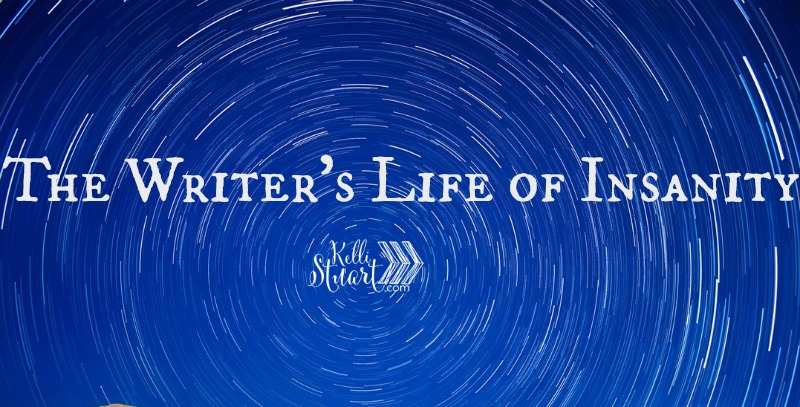The Writer’s Life of Insanity
I received the kindest text from a dear friend the other day. One of those texts that you wish you could frame and hang on a wall to read over and over again.
“I’ve been meaning to tell you for MONTHS how proud I am of you and your awesome book-ness and being an Author. Capital A, Author. Like Emily Dickinson, or Charlotte Bronte, or Mary Wollenstonecraft. Minus the crippling insanity, of course. Or maybe with a touch of insanity…it’s all good.”
This text came through at a moment of true insanity, of which I will spare you all the details. I’ll just say that it involved a toddler, an exposed diaper, and flinging excrement.
If that doesn’t define insanity, then…

That well-timed text brought encouragement in more ways than one. Besides simply making me smile after a harrowing mothering experience, it also boosted my confidence at a time when I feel like I’m wavering under the strain of this writerly life.
No one tells you that after you finish a book, all the words flee from your brain for a time. Since I turned my second manuscript in to the publisher in September, I’ve felt completely wordless. Everything I type feels silly, boring, and stale. I’m just out of words.
After speaking with a number of writer friends, however, I’ve come to the realization that this is totally normal. I’m not alone in my word fatigue – it’s a real thing.
I’ve wondered in the last few months what it must have been like to be an author back in the days before social media dictated the industry. Writers were always a bit mysterious back then, weren’t they?
By nature, most writers are introverted and reclusive, so the anonymity of writing works to their benefit. Only nowadays, one can no longer be reclusive as a writer, and even the introverted has to push herself beyond the boundaries of comfort and engage with the masses.
Social media demands that writers stay out there, constantly reminding the people that they can write. There’s no time for any of us to become insane because we can’t hide behind the walls of our cabins in the woods long enough to give in to insanity.
Okay, so most writers don’t have cabins in the woods. Except for maybe Stephen King, but he’s always been a touch insane, so he doesn’t count.
In this digital age, with an emphasis on “platform building”, however, one can feel quite insane in her efforts to stay current and fresh, and to keep writing. So what is to be done? Here are a three quick tips:
1.) Simply refuse to give in
I decided some time ago, after spending several years making myself blog every day even when I had nothing to say, that I wouldn’t write unless it was authentic. At least not publicly.
Behind the scenes, I do write most every day. But writing for public consumption has changed for me. Pushing content out into the world just so people remember me as a writer isn’t really to my benefit, especially if I end up pushing bad writing out.
I’d rather keep it locked up, and retreat into my metaphorical cabin in the woods, than shoot meaningless words out into an already oversaturated market.
2.) Give yourself some space to breath
Writing is an intense practice. It demands all you have mentally, and sometimes physically. It’s emotionally draining, sending you up and down a roller coaster of euphoria and despair as you try to finish your project. Sometimes, you just need to take a break and breath a little.
And you need to know that’s okay.
3.) You don’t suck
I’ve watched this (poor quality) clip from the show Mike and Molly several times, and I cannot stop laughing, because there’s so much truth behind the humor.
What you do, writer, is hard. You don’t suck, and neither does your writing. You’re just wrestling with words, and it’s an esoteric battle that you’re forced to fight in front of the world. So keep swinging, and cut yourself some slack. Don’t set the manuscript on fire just yet.
If the words aren’t flowing, it’s okay. They’ll come again. New stories will flood your mind. A new message will begin to take shape again when you allow yourself a little time to escape.
There’s a reason most writers are reclusive. It’s easier to write in the silence. But there’s also a reason that writers of old were known to be insane – all that alone time fighting battles with words, and riding the emotional roller coaster in seclusion, is bound to make you a tiny bit crazy.
But then so are children, so the truth is I’m probably destined to end up going insane at some point, no matter what.
Awesome…

